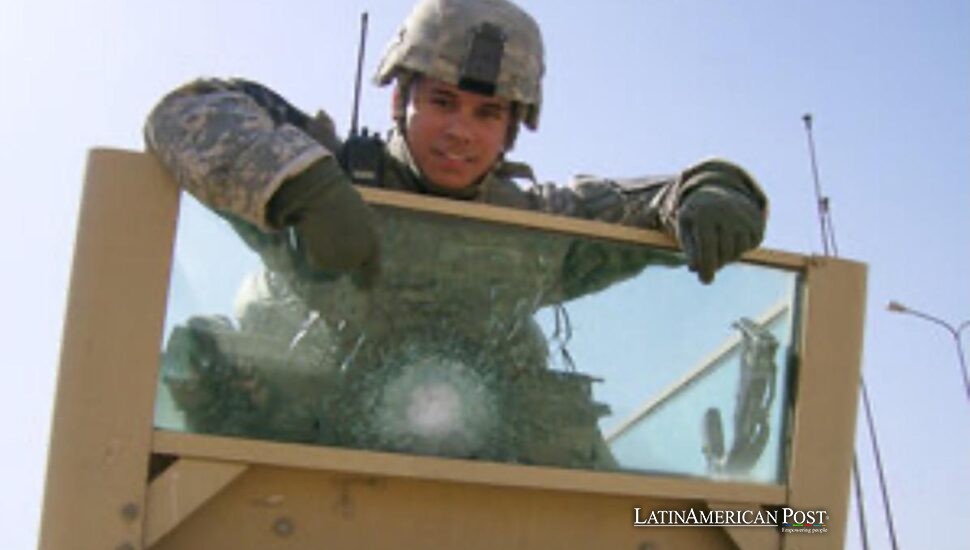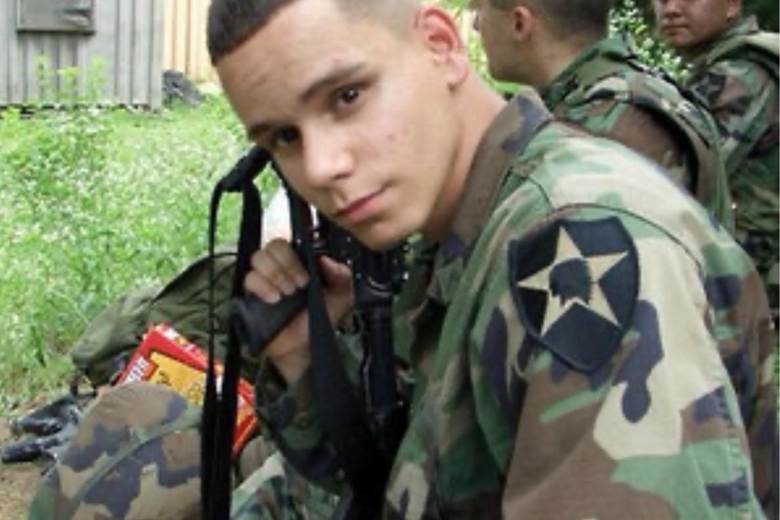The Veteran Who Saved Lives in Iraq, Lost His Own in Colorado, and Was Deported Into Uncertainty

Born in Venezuela to Cuban exiles, raised in the U.S. from age four, and twice deployed to Iraq, Army gunner José Barco once embodied the immigrant-soldier ideal. Then came a violent mistake, a long sentence, and a deportation that revived the very fears his family fled.
Valor and a Night That Altered a Life
The end arrived quietly, in the dead hours before dawn. At 4 A.M., Arizona state representative Raquel Terán announced on Fox 10 Phoenix that U.S. Immigration and Customs Enforcement had deported Army veteran and Purple Heart recipient José Barco from a detention facility in Florence. ICE said he had been sent to Nogales, Mexico, though Barco’s family told reporters they had no confirmation and “no firsthand knowledge” he had arrived. The silence, they said, was “frustrating.”
To The Christian Science Monitor, the confusion fit the story’s grim symmetry: the man who once carried wounded soldiers through smoke and fire was now shuttled across borders without even a clear destination. His legal team wasn’t notified. His wife didn’t know where he was.
Barco’s biography once felt straightforward: a boy born in Venezuela to Cuban parents who had fled Castro, raised from age four in the United States, then deployed twice to Iraq. In 2004, as the youngest soldier in his unit, he pulled burning wreckage off two trapped Americans after a car bomb exploded on the road between Fallujah and Ramadi. He hauled them out under incoming fire, suffering third-degree burns. Fellow soldier David Nash later called it “one of the most impressive things I’ve ever seen.”
But after a second combat tour, the clarity of purpose that defined his service cracked. Back home in Colorado Springs, Barco spiraled, haunted, his supporters say, by untreated PTSD and a traumatic brain injury. One night outside a house party, he fired a gun and hit a pregnant teenager in the leg. She survived, but the wound never left her. “I’m haunted every day,” she has said.
Barco received a 50-year sentence, served fifteen, and was paroled for good behavior. Instead of walking out of prison a free man, he walked into ICE custody. In the eyes of immigration law, the uniform he once wore held no weight. A court later ordered him deported to Venezuela, Cuba, or Mexico, three countries he barely knew, yet feared deeply.
Oaths, Paperwork, and the Citizenship Gap
Barco’s case sits where personal sacrifice collides with statutory indifference, a limbo familiar to hundreds of noncitizen veterans. “Even natural-born citizens who serve in the military are not exempt from the nation’s laws,” said Columbia University’s Stephen Biddle in comments relayed by the Monitor. The uniform can’t erase a crime. But for noncitizens, punishment stretches further: after the sentence ends, the second penalty begins.
Noncitizens have always fought in America’s wars. By the 1840s, they filled half of some units; by World War II, Congress fast-tracked thousands into citizenship. Even today, about 3 percent of active-duty troops are not U.S. citizens. Many, like Barco, never finish the naturalization process, often because recruiters overpromise, paperwork disappears, or soldiers believe their oath of enlistment is their oath of citizenship.
Former Air Force member Diane Vega, who works with the group Repatriate Our Patriots, hears the same refrain constantly: the blurred lines between the military oath and the naturalization oath lead many veterans to believe they’ve already crossed into American identity. “I understand when veterans say, ‘I thought I was a U.S. citizen,’” she told the Monitor.
Barco’s own paperwork, according to his legal team, vanished into the government’s administrative maze. When retired Sgt. Ryan Krebbs, who treated Barco in Iraq, learned of the ICE pickup. He asked the question many veterans have since repeated: “How are you not a citizen yet?“
He rallied more than two dozen former comrades into a WhatsApp group, trying to fight a system that felt mechanical, opaque, and irreversible. But the law’s machinery kept moving.

Equal Justice or Double Punishment?
Barco’s supporters and critics agree on one fact: he did something terrible. A teenager was wounded. A family carries trauma. No one in the veteran community has argued he should be absolved. The question is what justice looks like after a veteran serves his time.
For advocates, deportation functions like an extra sentence, longer than parole, harsher than prison, and with no end date. “Most people are deported after completing their sentences,” said Tran Dang, founder of the Rhizome Center for Migrants, in remarks cited by the Monitor. “It’s sort of like triple jeopardy. You keep getting punished for the same thing.“
The labyrinth intensifies because immigration law defines “aggravated felony” so broadly that even crimes not classified as felonies under state law can trigger mandatory removal. Barco’s case, Dang noted, is unusual only in how public it became; most of her clients are nonviolent offenders who still face the same machinery.
Veterans as a group are no more criminal than civilians, but they are more vulnerable to specific pressures. A 2023 Council on Criminal Justice report found that one in three veterans has been arrested, compared with one in five nonveterans. PTSD, traumatic brain injuries, and combat exposure multiply the risk. Among veterans with TBIs, the report found, justice-system involvement jumps 59 percent.
Retired Lt. Col. Michael Hutchinson, who knew Barco, wrestles with that complexity. “You can’t give everyone a free pass just for serving,” he said. But he also emphasized that Barco’s battlefield trauma “may have contributed” to the crime, adding that Barco had been “the opposite of the usual blustery infantry guy.”
Justice, for many watching this case, remains painfully polarized: is Barco a decorated soldier who broke under invisible wounds, or a violent offender whose service cannot outweigh his harm? For the government, the answer is more straightforward: he is deportable.
The Marxism Irony and a Perilous Endgame
The cruelest twist may be geographical. Barco was born in Caracas to Cuban parents who had already fled Marxism for a chance at safety. Now, the deportation law had ordered him sent to Venezuela, Cuba, or Mexico, three nations he believed could see his military record not as honorable service but as espionage.
Before his removal, Barco told immigration Judge Tyler Wood that, as a U.S. veteran, authorities in Caracas or Havana “could think I’m a plant,” making him vulnerable to torture or imprisonment. His fear deepened when he heard Trump say he had authorized CIA action in Venezuela, comments widely reported at the time and noted by the Monitor.
What followed was a bureaucratic odyssey. Barco initially waived his right to contest deportation, “I guess you could say I was desperate,” he told the court. He was flown to Honduras for Venezuelan processing, only to be rejected after officials questioned his Cuban-accented documents. That left him at the edge of statelessness: unable to enter one country, forbidden to return to another, cut off from the VA medical care he earned.
His attorney, Kevin O’Connor Jr., argued that Mexico, where deported U.S. veterans have fragile but real support networks, offered the “least dangerous bad option.” But life there holds its own hazards. Former soldiers, stripped of U.S. protection yet skilled in combat, can become targets for cartel recruitment.
At a vigil in Aurora, Colorado, a flickering candle of the Virgin of Guadalupe trembling in the wind, supporters gathered to pray and protest. Former mayor Anna Stout insisted this wasn’t about pity. “Highlighting his service,” she said, “is a claim that service should matter.“
Some U.S. policy was once agreed upon. The Immigrant Military Members and Veterans Initiative brought more than a hundred deported veterans home through humanitarian parole. But the momentum stalled. Many deported veterans scrape by in limbo, paying annual renewal fees to remain eligible for the country they fought for.
By late September, Barco had lost his appeal. Deportation was ordered, destination unspecified. Days later, at 4 A.M., ICE loaded him onto a transport van.
Somewhere beyond the border, a Venezuelan-born, American-made veteran stepped into a country he barely knew, carrying the worst night of his life and the best of his service, caught between a system’s cold arithmetic and the same political ghosts his family once fled.
Also Read: The Mexican Man Who Survived a Galapagos Shark Bite And Went Back to Thank It





